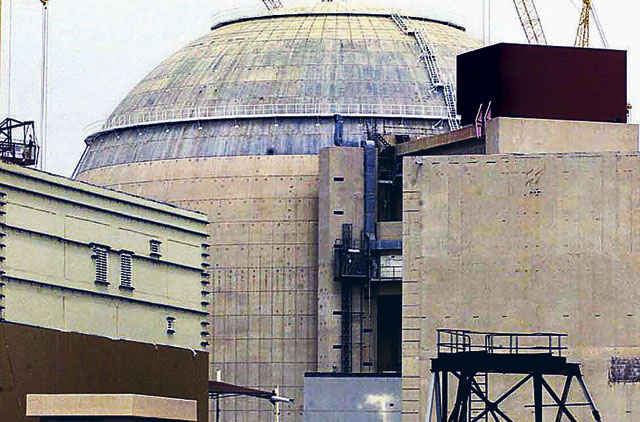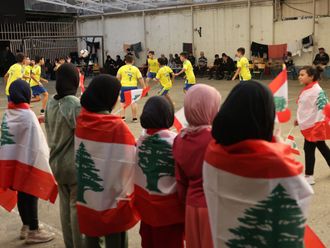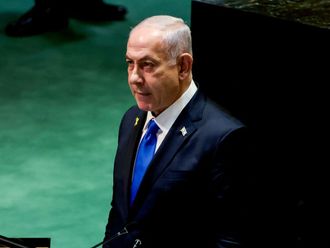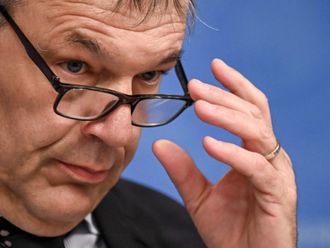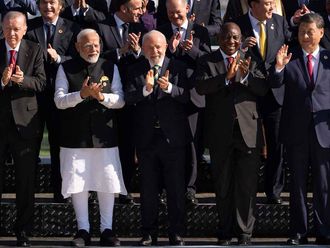Davos: Saudi Arabia is uneasy about the current sanctions programme on Iran, and fears that it will not work. Instead, the Saudis would like a renewed focus on a plan for a nuclear-free Middle East, which would have the benefit of targeting all states in the region with nuclear weapons, including Israel.
This plan for a nuclear free Middle East was outlined by Prince Turki Al Faisal Al Saud, a former Director of Saudi Intelligence and former Ambassador to the UK and the US, speaking in an Al Arabiya debate held at the World Economic Forum in Davos.
"At the recent review of the Non Proliferation Treaty we agreed that in 2012 we will have a conference of Middle East states, and add two provisions to the NPT," said Prince Turki. "One would be rewards for those states that sign up to a Middle East free of nuclear weapons, which could include support and help with developing peaceful nuclear technology.
"The other provision would be for sanctions against any country which refuses to sign up to the plan, and that could include diplomatic and economic activity, but would also include the military option in the end. Any country that does not join a nuclear free Middle East will face sanctions."
This proposal means that if any country failed to agree to a nuclear free Middle East, and that in the last resort military action was required, then it would be supported by all signatories in the region.
"A nuclear free Middle East will not happen on its own, because the West does not want it. Therefore the zone should take priority, and its system of reward and sanctions would be far more acceptable that any unilateral military action," said Prince Turki.
This proposal will embarrass United States since it has continued to support Israel despite its nuclear weapons programme, and it has not insisted on the same strictures that it wants on Iran.
But Richard Hass, President of the Council on Foreign Relations, and former official in the Bush administration, criticized the Saudi plan as being far too slow, and he was not hopeful that the plan would work.
"The technology is going a lot faster that any diplomacy. Iran will be able to have weapons long before any diplomacy has a chance to work. The time lines are quite short," said Haas.
Prince Turki sharply disagreed with him in the debate, arguing that there was time, and the consequences in the region of not having a regional plan in pace are too serious to ignore, he argued.
"The Middle East cannot afford the competition that a nuclear Iran would cause. And the high risks of any military action should force us to look at the diplomatic route," said Prince Turki.
The possible arms race also concerned Ali Babacan, the Turkish Foreign Minister, who was clear that if Iran gets nuclear weapons, then more countries in the region will go for weapons themselves, which would be disastrous. Babacan was outspoken in his conviction that only diplomacy and engagement can overcome this issue.
"We are actively involved in this, and Iran is a good neighbour of ours. Turkey and Brazil are working on our initiative to try to solve this issue. This process is running alongside the work being done the P5 plus 1," he said.
Karl-Theodor Freiherr zu Guttenberg, Minister of Defence in Germany, which is part of the P5 plus 1 group, was clear that he did not see a clash between that process and the work being done by Iran's neighbours. "The dual track is vital and those of us working in the P5 plus 1 will continue to coordinate our efforts with those being conducted by Iran's neighbours." Guttenberg said, adding that lots of diplomatic routes are possible.
Haas saw no future in diplomacy. "Iran sees diplomacy as simply tactics. The P5 plus 1 will not work. The Turkey-Brazil initiative will not work. Iran is not sincere in its talks. Therefore only sanctions will work, and it they do not we will face a binary choice: to live with a nuclear Iran or to go to the military option."
"Force is a serious option," he continued. "Any action would not follow the Iraq and Afghanistan, but instead would use naval and air force action to attack Iran's nuclear installations. This is costly and risky, but so is living with a nuclear Iran."
"People are worried about Iran having weapons, in large part because Iran is not a status quo power. It is not a normal state. It wants to reshape the region in its favour.
The Middle East is unstable and dangerous. A nuclear Iran will not change the balance of power in the region, but it will change the way in which Iran operates, since it will make its leadership a lot more confident in their actions.
When asked if he thought Iran had nuclear weapons, Haas said "Iran certainly has nuclear technology, and even if it does not go all the way to acquiring nuclear weapons, it is almost certain to go 80 to 90 percent of the way to become what is called a threshold state, which would give it all the benefits of nuclear weaponery, but without the weapons."


